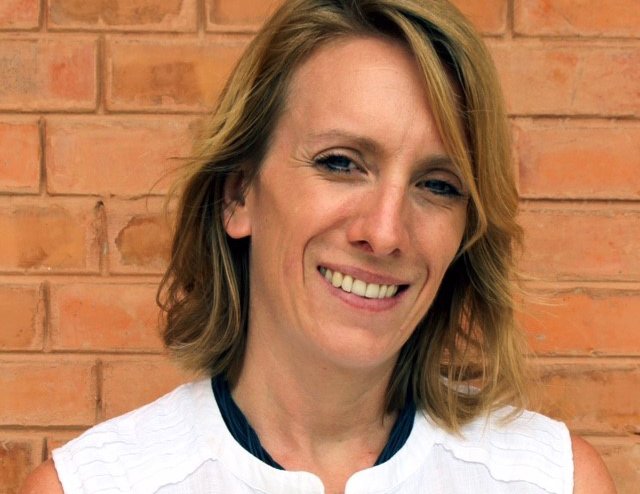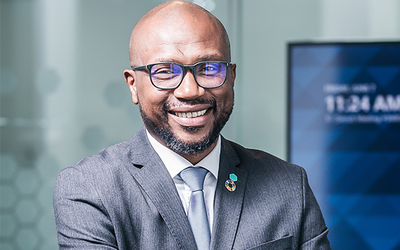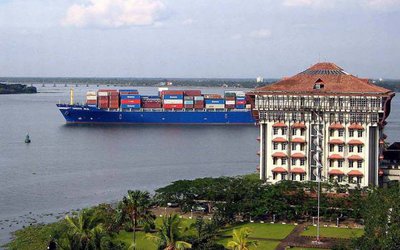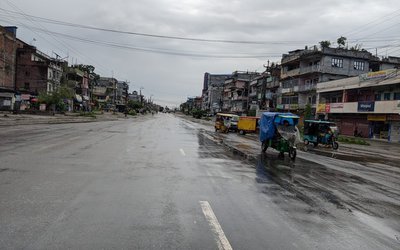
Sophie Hodder joined Marie Stopes Nepal in February 2016 bringing with her 12 years' health sector experience ranging from private sector to humanitarian, emergency and international development. Women's health has been a focus in Sophie's career coupled with a strong background in sustainable health financing. Sophie joined the Nepal program at an exciting but challenging time. Nepal has one of the most liberal abortion laws in the region, but that does not always translate into safe services for women. Sophie is leading the Marie Stopes Nepal team to ensure that women are able to exercise their rights by receiving safe, high quality and affordable services.
Prior to joining us, Sophie spent the past 10 years mainly in Africa, including Rwanda, Senegal, Ghana, Democratic Republic of Congo and Haiti. Previous employers range from the Clinton Health Access Initiative most recently, to Medecins Sans Frontieres and the British National Health Service. Her qualifications include a Masters in Engineering and also in Public Health.
As Nepal is celebrating the World Contraception Day on 26th September organizing various programs the country is yet to fill the gap in demands of contraception. Marie Stopes Nepal is a leading organization working in Nepal in family health sectors, Sophie Hodder, the Country Director at Marie Stopes Nepal, spoke to New Spotlight on various issues.
How do you see international organization like MSI in the changing context guaranteeing RH as a fundamental right of women y Nepal's constitution?
At Marie Stopes International in Nepal, our aim is to ensure that every woman can choose for herself when and how many children she wants to have. We do this by ensuring accessible and affordable healthcare services and products including family planning and safe abortion services for those who want them. In the changing context, we have had multiple dialogues with some of the municipalities to prioritize reproductive health issue and to allocate fund for safe abortion. This authority to allocate funds for local level priorities was previously with the District Health Office. We have also worked with some of the locally elected body by providing orientation to them on Reproductive Health. At organizational level, MSI ensures that no women are denied of family planning and safe abortion service by providing subsidized treatment fund for women who otherwise would not have been able to pay for abortion. We have also been providing free family planning and safe abortion services from our centers. Further we also provide counselling services through our toll-free numbers 16600119756 (NTC) and 98011197756 (NCell).
There is a growing incidence of early pregnancy in Nepal contributing to maternal mortality. How your organization has been supporting to reduce early pregnancy.
We believe women everywhere, regardless of where they live, should have access to comprehensive sexual and reproductive health services – including a range of contraceptive methods andaccess to safe abortion – so they can make informed choices about their reproductive health. We are focusing on educating adolescents and youth by establishing Adolescent Friendly Information Corners (AFIC) in 10 schools each in 10 districts across the country. We are also conducting orientation to adolescents, teachers and health providers regarding Comprehensive Sexuality Education and AFIC services. Our services are provided in clinics, through mobile outreach teams and Marie Stopes ladies, to expand access to high quality family planning and safe abortion services. In 2017, 4% of our clients were adolescents(<19 yrs) and 23% were youth (20-24 yrs).
At a time when there is a huge gap of supply and demands pf family planning, What Nepal needs to do to it? With nationwide network working to prevent early pregnancy, what is your experience
MSI has 36 centres spread across 31 districts providing high quality family planning services and abortion services. In addition, our 50 Marie Stopes Ladies, who are government trained Auxiliary Nurse Midwiferys provide family planning services to women in 16 districts by going door to door and providing services in the health centres. We also have 18 Outreach teams for Long Acting Reversible Contraceptives services and permanent methods included family planning services operating through camps in 13 districts throughout the year. To mitigate the gap in supply and demand of Family Planning services, we also need to provide more choices to women. To do that, we have piloted 3-yearimplant in some our clinics. We are also working with the Ministry of Health so that this will be available in the government health facilities also. Likewise, we are also trying to conduct a study on self-injectable contraceptive in Nepal to provide more choices to women. If there are more choices available and more places to avail services like the MSI centres, MS Ladies and Outreach camps available then more women, including adolescents and youth, will be able to access family planning services more easily.
Nepal is a country of young population with large numbers in reproductive age. How do you see the challenges?
There is a need to incorporate other sectors like education sector to provide good knowledge of sexual reproductive health at school and college level. There is a need to provide information on safe sex practices, family planning and abortion service.Challenges now lies in the new federal structure that is yet to be fully functional and institutionalized.There is a need to orient the health coordinators on the importance of Family Planning and Safe Abortion. As the country embarks on implementing a new federal structure of governance, a prominent challenge will be to quickly mainstream Sustainable Development Goals into the provincial and local level planning and budgeting systems. Weak database and lack of availability of disaggregated data by sex, age, social groups, disability status, geography, income and sub-national level will hinder monitoring of progress. In addition to the realignment of policies, financing challenges will loom large, particularly to trigger and sustain job-creating economic growth, enhance the quality of social service provisioning and to invest adequately to reduce risks from disasters.
With frequent changes in Nepal's law and regulations, how do you find working in Nepal as a leading civil society organization
As an organization we have been working through our implementing partner since 1994 and have seen lots of political changes, policy and regulation changes. We have earned lot of good will and name as we provide quality family planning and safe abortion services. It may not be easy with lot of change, but our service standard and quality has not been compromised.
How do you see the state of Nepal is implanting projects to meet SDGs?
Nepal was probably one of the first countries to produce a SDG baseline study in 2015, before the formal adoption of the SDGs. SDG 3 targets include reducing the maternal mortality rate to less than 70 per 100,000 live births by 2030. The targets for SDG 5 includeensuring universal access to sexual and reproductive health and reproductive rights as agreed in accordance with the Programme of Action of the International Conference on Population and Development and the Beijing Platform for Action and the outcome documents of their review conferences. MSI is working closely with the government of Nepal to ensure quality service on family planning and abortion, leading to reduction in maternal mortality rate. At the same time, we are helping women make the decision so that every child is wanted – children by choice, not chance. By giving the decision power in the hands of the women who access service at various touchpoints with MSI’s international standard, high quality, safe and confidential service, we are helping the government meet SDG 5 goals.In January-June 2018 itself, MSI has been able to avert 99,350 unintended pregnancies, 96,400 unsafe abortions and 215 maternal deaths.
Having a nationwide network providing reproductive related counselling, how do you see Nepal's reproductive health issue?
The NDHS 2006, 2011 and 2016, show that there has been a notable decline in the contraceptive prevalence rate in Nepal. People are seeking alternatives like abortion. However, as per a 2017study report on abortion incidences and unintended pregnancy in Nepal, a significant proportion of women obtain illegal and unsafe abortion. As per the Guttmacher study, in 2014, women in Nepal had 323,100 abortions, of which 137,000 were legal, and 63,200 women were treated for abortion complications. The abortion rate was 42 per 1,000 women aged 15-49, and the abortion ratio was 56 per 100 live births. Overall, 50% of pregnancies were unintended, and the unintended pregnancy rate was 68 per 1,000 women of reproductive age. Despite legalization of abortion in 2002, and expansion of services in Nepal, unsafe abortion is still common and exacts a heavy toll on women. Abortion legalization has led to a decrease in the number of women presenting with severe abortion complications, and it has contributed to a decline in the country’s maternal mortality ratio, which fell from 580 maternal deaths per 100,000 live births in 1995 to 190 deaths per 100,000 live births in 2013. MSI is playing a crucial role in increasing access to high-quality contraceptive care and expand safe abortion services. Women can access confidential counseling on sexual, reproductive health issues and information of where they can access safe and confidential service provided by MSI in our nation-wide network by calling our toll-free numbers16600119756 (NTC) and 98011197756 (NCell) from 7 am to midnight.
- Nepal-UK Tech Forum Held
- Jul 06, 2025
- Hari Sayani or Devshayani Ekadashi 2025: Day Of Tulsi Plantation
- Jul 06, 2025
- Siddhababa Tunnel Makes A Major Milestone
- Jul 06, 2025
- Weather Forecast: Generally Cloudy Across The Country With Heavy Rain At One Or Two Places Gandaki, Bagmati and Koshi Provinces
- Jul 06, 2025
- India’s External Affairs Ministry’s Senior Officials Says Indo-Nepal relations are ever expanding
- Jul 05, 2025















